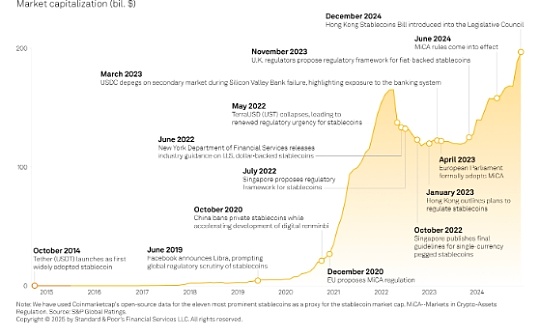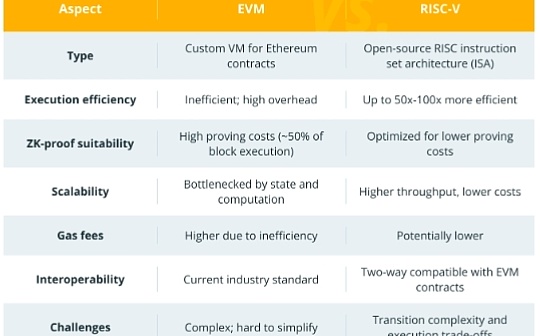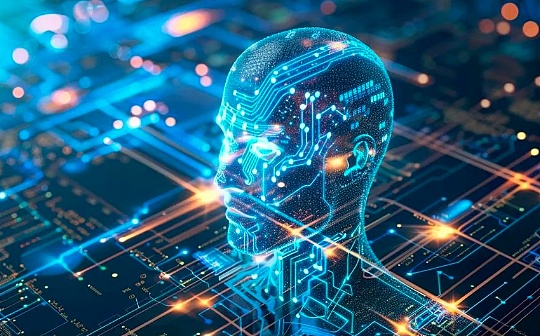
Author: Onkar Singh, CoinTelegraph; Compiled by: Tao Zhu, Bitchain Vision
1. Agent-type artificial intelligence (Agentic AI) Detailed explanation
Agent artificial intelligence refers to an artificial intelligence designed to represent one’s own actions, with a certain degree of independence and decision-making ability.
This kind of artificial intelligence is not just about processing data or responding to commands; instead, it can set goals and make decisions to achieve these goals, often in a way that mimics humans.
It’s like giving AI a sense of purpose and the ability to achieve this with minimal human intervention.
This differentiates it from traditional AI, which usually requires manual input or predefined rules to run.Agent AI is self-guided, which means it can make decisions in real time based on the environment and goals.
2. The working principle of agent-type artificial intelligence
Agent AI works by combining advanced machine learning technologies, decision algorithms and continuous feedback loops.
Think of it as a robot that learns from experience and then uses this knowledge to influence its future actions.It usually works in the following ways:
-
Goal setting: Agent AI determines the target based on initial programming or continuous environmental input.It may be set to complete specific tasks, such as optimizing the supply chain or increasing user engagement.
-
Decision: It then analyzes the data and uses algorithms to decide the best course of action to achieve the goal.
-
Learning and Adapting: Like all AI systems, proxy AI learns from success and failure.It constantly adjusts its strategies and optimizes its decision-making process.
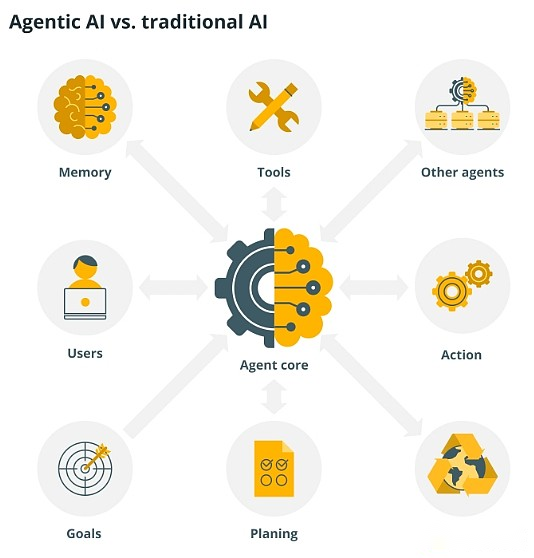
The key here is that artificial intelligence can set its own action plan based on real-time input, making it more autonomous than traditional artificial intelligence systems.So, why are people so excited about proxy AI?
three,Advantages of Agent Artificial Intelligence
Agent AI improves efficiency, minimizes human errors and expands seamlessly, making it ideal for industries that require continuous optimization.
-
Improve efficiency:Since proxy AI does not require continuous human supervision, it can run around the clock, constantly learning and adapting to new data.
-
Reduce human error:Because proxy AI makes decisions based on data and algorithms, it is less likely to occur with bias or errors that may be caused by human judgment.
-
Scalability:Agent AI can handle massive amounts of data and complex tasks in various industries while expanding its decision-making processes to meet growing operational needs.
These advantages make agency AI particularly attractive in industries such as logistics, healthcare, finance and customer service, as continuous optimization is key to maintaining a competitive advantage.
4. Agent-type artificial intelligence applications
Agent AI is transforming healthcare, supply chain, finance and customer service through autonomous, goal-driven decision-making.
-
Healthcare:In medical research, agent-based artificial intelligence can independently analyze patient data, recommend treatment plans, and even provide new ways to drug discovery.
-
Supply Chain Optimization:AI systems that set goals, optimize routes and make inventory management decisions without manual direct intervention have improved the efficiency of global supply chains.
-
finance:Agent AI is used for algorithmic trading, which can set financial goals and make real-time decisions based on market data to achieve these goals.
-
Customer Service:Proxy AI-powered chatbots and virtual assistants can not only answer questions, but also make decisions to solve customer problems or personalize customer experiences without waiting for input.
Encryption-specific examples for proxy AI applications
-
Cryptocurrency Trading and DeFi:Agent artificial intelligence can independently analyze market trends, adjust trading strategies, and optimize profit farming without manual intervention.
-
Fraud detection and compliance:Agent AI can track illegal transactions, mark potential money laundering and execute regulatory compliance on-chain.
-
Smart contract security:It detects vulnerabilities, audits smart contracts, and prevents exploitation by identifying suspicious transactions in real time.
-
NFT and Metauniverse Asset Management:Non-fungible tokens (NFTs) and virtual assets require valuation, curation and liquidity management.Agent AI can evaluate market trends, predict asset appreciation, and recommend the best buying or selling strategies for digital assets.
5. Agent Artificial Intelligence and Autonomous Artificial Intelligence
Agent AI sets and adjusts its own goals, while autonomous AI runs within predefined parameters.These two terms are often used interchangeably, but they have obvious differences.
Autonomous AI refers to an artificial intelligence system that can run without human intervention, but it usually operates within a defined framework or goal defined by humans.It’s like an autonomous car, but the parameters it follows are determined in advance.
On the other hand, agent-based AI can not only operate independently, but also set and redefine its own goals when learning from the environment.Autonomous AI is like a car that follows GPS, while proxy AI is a car that can determine the best route and adjust its destination based on real-time traffic data or other factors.
Here is a summary of the differences between proxy and autonomous AI:
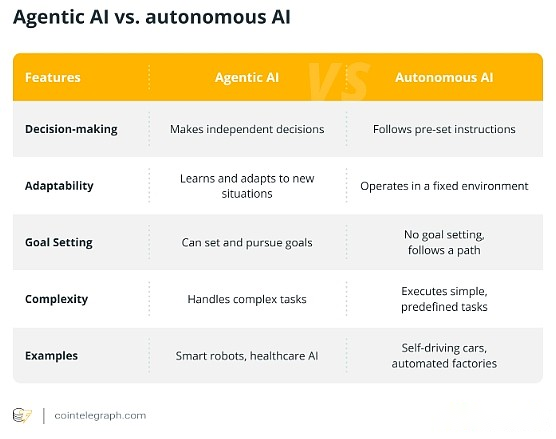
6. Agent-type artificial intelligence, artificial intelligence agent, and generative artificial intelligence: Which one is more powerful?
Generative AI creates content based on inputs; artificial intelligence agents perform tasks based on commands; proxy AI sets its own goals, makes decisions, and adapts to real-world feedback.
The entire content of generative artificial intelligence is creation—whether it is text, images, music or video.It does not make decisions or set goals; it simply generates content based on the input received.
For example, ChatGPT is a generative artificial intelligence.If you ask it to write an article, a poem, or a code, it will generate it, but it won’t decide for itself what it needs to write.
In contrast, AI agents are designed to accomplish specific tasks based on commands.Unlike generative AI that produces creative output, AI agents focus on actions—retrieving information, automating processes, and executing user requests.
Siri and Alexa are examples of AI agents.If you ask Alexa to set an alarm, play songs, or turn off the lights, it will be done efficiently.But unless you explicitly program it won’t decide on your own when you need an alarm or which playlist is right for your mood.
Agent artificial intelligence goes a step further.Not only can it create content like generative AI or follow commands like an AI agent, it can also set its own goals, make decisions and adjust based on real-world feedback.
For example, imagine an investment robot powered by AI.Traditional AI agents can buy cryptocurrencies when you direct, but agent-based AI can analyze the market, develop investment strategies and adjust its approach without human intervention.It will think ahead, learn from past performances, and refine its strategies over time.
Think of agent AI as a self-driven entrepreneur who not only handles tasks, but also decides which tasks are worth pursuing and how to improve them.This is the next level of AI autonomy.
Here is a summary of the differences in purpose and autonomy between generative AI, AI agents and proxy AI:
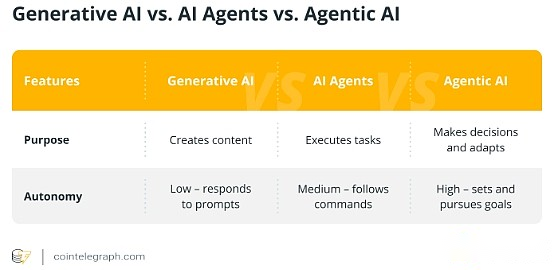
But which one is more powerful?
It depends on the use case.Generative AI may be the best choice for you if you need content.If you need task execution, an AI agent is reliable.
But if you need an AI that can think, plan and adapt, proxy AI may be the best choice for you
The real breakthrough will be combining these three into a system—an artificial intelligence that can generate, execute and optimize decisions on its own.It seems that this is the direction of artificial intelligence development!

